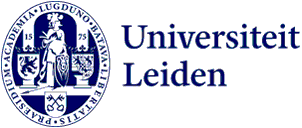
‘Podcast gives its listeners a sense of identity and belonging’
In the Netherlands, when we talk about the United Nations, the conversation is almost always about the member states from the northern hemisphere. But the most interesting players come from the ‘Global South’, Professor Alanna O'Malley and her team argue in a podcast.

‘The United Nations is the only global institution that we have where most of the world’s people and states are represented', O’Malley explains. ‘Currently there are 193 member states, but still most of its history is written from the perspective of the West, while two thirds of the members since 1960 are from the Global South. And not only have they been in the majority, they’ve also been the most dynamic and interesting actors in that space since 1960 and in fact since 1945.’
‘The UN is the only global institution where most of the world’s people and states are represented.'
‘One of the most obvious examples of this is the way that countries from Latin America, Asia and Africa came together in 1964 and created the United Nations Conference on Trade Development,’ she continues. ‘That was an effort to revise the rules of world trade to make them more favourable to the Global South. These actors created a new UN institution which still exists and made the world economy fairer.’
Closing the gap with the South
It’s these kinds of stories from the ‘invisible history’ between the UN and the Global South that O’Malley wants to highlight in her research project, funded by the European Research Council. ‘The countries of the Global South aren’t just the recipients of international systems and international ideas of the West,’ she emphasizes. ‘They’re also the architects and the actors who shape these programmes. We really know very little about that, so this project is about closing that gap.’
Using a podcast for community building
Remarkably, O’Malley did not choose the medium of an article to spread her ideas. Instead, she and her team decided to make a podcast. ‘I wanted to give younger academics a way to engage with what we’re doing without having to wait for a publication or until they’re physically here,’ she explains, the latter being one of the reasons the team chose a podcast and not, for instance, a video.
'Everybody with a smartphone can access podcasts for free.'
Another reason to choose a podcast is the audience. ‘Everybody with a smartphone can access podcasts for free. All these communities in the Global South we want to connect with can listen and almost become a part of our group. Podcasts are a bit like traditional radio: when you’re in the habit of listening to the same voices, you feel part of that group. It gives a sense of identity and belonging.’
Digestible chunks of information
For the team, a podcast wasn’t the easiest choice, she admits. ‘Of course, it was difficult. You’ve got this big project with a lot of complex ideas and suddenly you have to break down the message of your research into digestible chunks of information that are actually interesting to the general public, rather than having eight thousand words to explain yourself. That’s been a particularly important lesson.’
Six podcast episodes have now been launched, and a new series will follow later this spring. ‘The first ones were just with our team, but a while ago we had a big conference where we recorded everything to make more episodes. That way, we could open the conference proceedings for people who weren’t there, because a conference is always selective in terms of how many people can come, who can travel, and how many people you can host. In this case, a podcast really offers another way to show people what’s going on and focus on what research is being done.’
The Global Orders podcast is available on Spotify, Google Podcast and Apple Podcasts. The podcast is part of the ERC project ‘Challenging the Liberal World Order from Within, The Invisible History of the United Nations and the Global South’. If you want to know more about the history of the United Nations, the Global Order master’s programme includes a class dedicated to the history of the UN.
